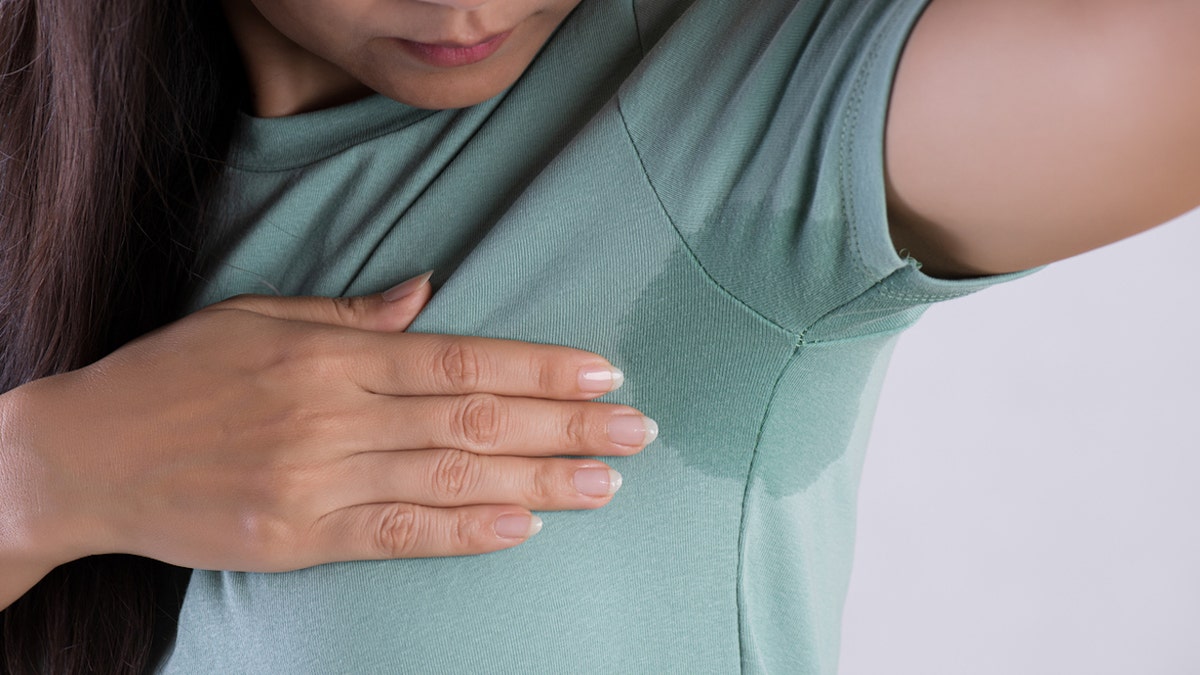Fox News Flash top headlines for March 26
Fox News Flash top headlines are here. Check out what's clicking on Foxnews.com.
Smelling other people’s sweat might not seem like a desirable activity, yet a new study from Sweden suggests that exposure to body odor could be an alternative therapy for social anxiety.
The study’s findings were presented at the European Congress of Psychiatry, held from Aug. 25-Aug. 28 in Paris. This study is part of a larger EU-funded project, POTION (Promoting social interaction through emotional body odors), coordinated by the University of Pisa.
Elisa Vigna, the lead researcher from the Karolinska Institute in Stockholm, Sweden, said at the conference that when people are in a certain "state of mind" and then sweat, their perspiration includes certain molecules — or "chemo-signals" — that convey their "emotional state" and elicit "corresponding responses" in those who smell it.
"The results of our preliminary study show that combining these chemo-signals with mindfulness therapy seems to produce better results in treating social anxiety than can be achieved by mindfulness therapy alone," Vigna also noted during the presentation in Paris.

A new study from Sweden suggests that exposure to body odor could be an alternative therapy for those suffering from social anxiety. (iStock)
The researchers collected sweat from volunteers who watched clips from movies to induce emotions.
'MONDAY BLUES': HOW TO COMBAT ANXIETY AND SADNESS AS A NEW WEEK BEGINS, ACCORDING TO EXPERT
Next, 48 women who were experiencing social anxiety were exposed to different odors — some of which included the sweat samples — along with mindfulness therapy.
"The sweat samples used in the study are odorless — they are not perceived by the participants as unpleasant or with that distinctive and familiar smell of sweat," Vigna told Fox News Digital in an email.
"Smells trigger the limbic system of the brain, which can trigger strong or calming emotions."
"We found that the women in the group exposed to sweat from people who had been watching funny or fearful movies responded better to mindfulness therapy than those who hadn’t been exposed," Vigna explained at the conference.

Fifteen million adults in the U.S. have social anxiety disorder, according to Mental Health America. (iStock)
Specifically, those who engaged in mindfulness therapy along with exposure to body odors had about 39% lower anxiety, compared to a 17% reduction in the participants who only had mindfulness therapy.
Sweat produced with emotion has anxiety-reducing effect
Vigna said the research team was surprised to find that it didn’t matter which emotions the people experienced while producing the sweat.
OHIO WOMAN PUSHES PAST BREAST CANCER, WON'T LET DIAGNOSIS SLOW HER DOWN
"Sweat produced while someone was happy had the same effect as someone who had been scared by a movie clip," she said.
"I suspect it is the salty fragrance of armpit odor that elicits the response — connecting to a primitive emotion."
"So there may be something about human chemo-signals in sweat generally that affects the response to treatment."
Dr. Marc Siegel, clinical professor of medicine at NYU Langone Medical Center and a Fox News medical contributor, told Fox News Digital that "smells trigger the limbic system of the brain, which either triggers strong emotions or calms you, depending on the scent. It may also trigger calming memories."

The study results "show that combining … chemo-signals with mindfulness therapy seems to produce better results in treating social anxiety than can be achieved by mindfulness therapy alone," the lead researcher said. (iStock)
"I suspect it is the salty fragrance of armpit odor that elicits the response — connecting to a primitive emotion," he added.
More research is needed
While Vigna said the results of the study were interesting and promising, more research is needed to confirm the findings.
"The project is ongoing and we are performing a larger clinical study," she told Fox News Digital. "Moreover, the University of Pisa is working to identify the chemicals responsible for the observed effects."
Also, given the exploratory nature of the study, the researchers used a relatively small sample size comprised of only young women. "Future studies will need to assess the replicability of the results with a larger target population," Vigna said.
CLICK HERE TO SIGN UP FOR OUR HEALTH NEWSLETTER
Social anxiety disorder is "characterized by persistent fear of one or more social or performance situations in which the person is exposed to unfamiliar people or to possible scrutiny by others," according to the National Institute of Mental Health.
CLICK HERE TO GET THE FOX NEWS APP
Fifteen million adults in the U.S. have social anxiety disorder, per Mental Health America, a nonprofit group based in Alexandria, Virginia.











































